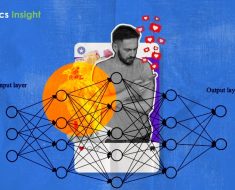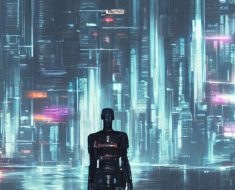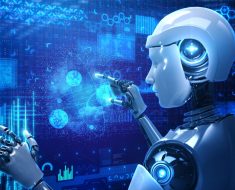Generative AI has gained significant attention in 2023. As everyone is busy experimenting with it and building innovative applications and tools for the betterment of humanity, it becomes increasingly more important to understand the basics and technical nuances, and not just fall prey for the hype.
Here AIM has listed the top seven must read generative AI books of 2023 for machine learning engineers and data scientists, enhancing your understanding and skills in the field of Generative AI.
Modern Time Series Forecasting with Python
by Manu Joseph
Modern Times Series Forecasting with Python by Manu Joseph offers a comprehensive guide to analysing, visualising, and creating state-of-the-art forecasting systems using machine learning and deep learning techniques. It covers topics such as global forecasting models, cross-validation strategies, and forecast metrics. The book covers data handling, visualization, classical statistical methods, and developing ML and DL models on real-world datasets. By the end, readers can build world-class time series forecasting systems and tackle real-world problems.
Generative AI with Python and TensorFlow 2
by Joseph Babcock and Raghav Bali
In this book, Generative AI with Python and TensorFlow 2 by Joseph Babcock and Raghav Bali gives you a glimpse of generative models evolution, from Boltzmann machines to VAEs and GANs, learn TensorFlow model implementation, and stay updated on deep neural network research.
Generative Deep Learning
By David Foster (Author) & Karl Friston (Foreword)
Generative Deep Learning by David Foster and Karl Friston talks about machine learning engineers and data scientists how to create generative deep learning models using TensorFlow and Keras, including VAEs, GANs, Transformers, normalizing flows, energy-based models, and denoising diffusion models. It covers deep learning basics and advanced architectures, providing tips for efficient learning and creativity.
Designing Machine Learning Systems
By Chip Huyen


Designing Machine Learning Systems by Chip Huyen tells about a holistic approach to designing ML systems that are reliable, scalable, maintainable, and adaptive to changing environments and business requirements.
Natural Language Processing with Transformers
By Lewis Tunstall, Leondro von Werra & Thomas Wolf
–
Natural Language Processing with Transformer by authors Tunstall, von Werra, and Wolf, provides a hands-on explanation of transformers’ functionality and their integration into various applications, including news writing, Google Search queries, and chatbots. If you’re a data scientist or coder, this practical book shows you how to train and scale these large models using Hugging Face Transformers, a Python-based deep learning library.
Interpretable Machine Learning with Python – Second Edition
By Serg Masis
Interpretable Machine Learning with Python, Second Edition, by Serg Masis teaches the key concepts of interpreting machine learning models using real-world data. It provides a range of skills and tools to decipher complex models, from flight delay prediction to waste classification. The book covers traditional methods like feature importance and partial dependence plots, as well as integrated gradients and gradient-based attribution methods. It also teaches hands-on techniques for tuning models and training data for interpretability, reducing complexity, mitigating bias, and enhancing reliability.
Generative AI with LangChain
By BenAuffarth
Generative AI with LangChain by Ben Auffarth explores the functions, capabilities, and limitations of LLR models like ChatGPT and Bard, and how to use the LangChain framework for production-ready applications. It covers transformer models, attention mechanisms, training and fine-tuning, data-driven decision-making, automated analysis and visualization using pandas and Python, and heuristics for model usage. The goal is to provide a comprehensive understanding of LLMs and their potential for enhancing our understanding of the world.





